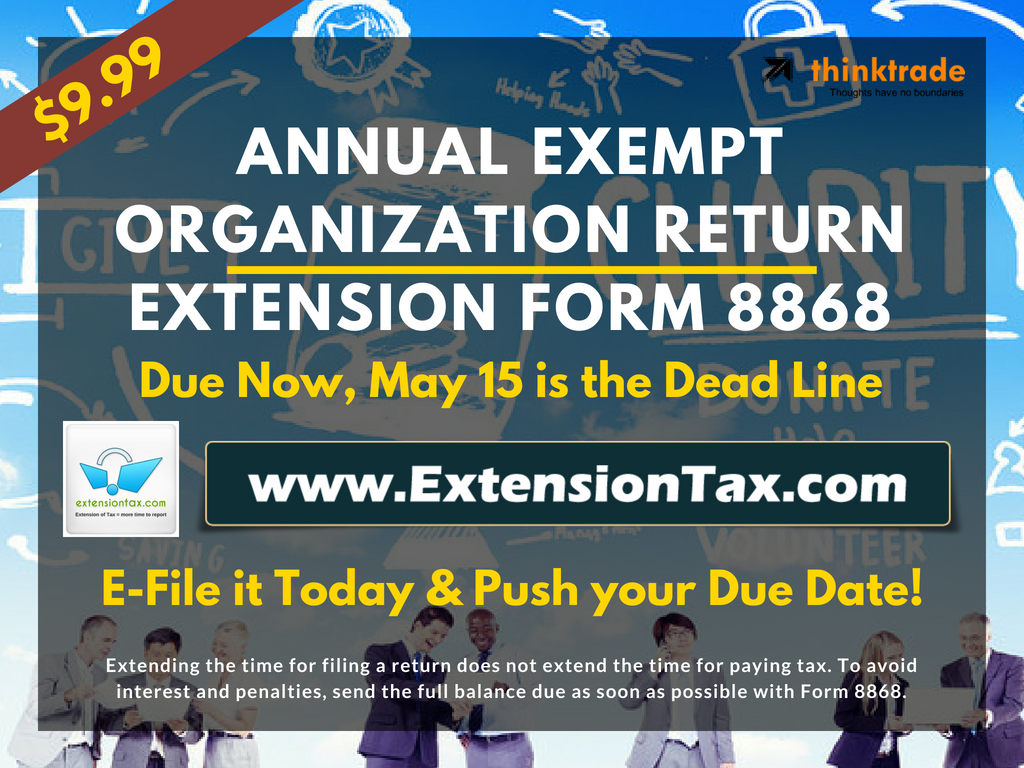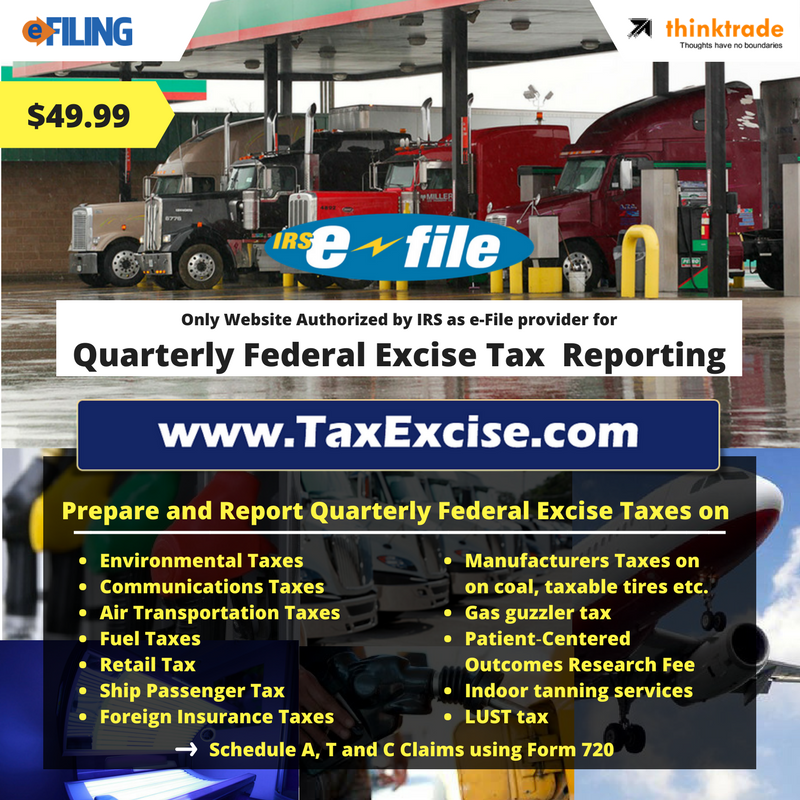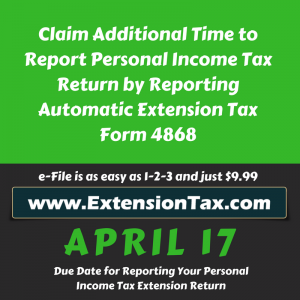Extension of Time to File Exempt Organization Returns
Use Form 8868, Application for Extension of Time To File an Exempt Organization Return, to request a 6-month automatic extension of time to file any of the following returns:
- Form 990, Return of Organization Exempt from Income Tax
- Form 990-BL, Information and Initial Excise Tax Return for Black Lung Benefit Trusts and
- Certain Related Persons
- Form 990-EZ, Short Form Return of Organization Exempt from Income Tax
- Form 990-PF, Return of Private Foundation
- Form 990-T, Unrelated Business Income Tax Return
- Form 1041-A, U.S. Information Return – Trust Accumulation of Charitable Amounts
- Form 4720, Return of Certain Excise Taxes on Charities and Other Persons under Chapter 41
- and 42 of the Internal Revenue Code
- Form 5227, Split Interest Trust Information Return
- Form 6069, Return of Excise Tax on Excess Contributions to Black Lung Benefit Trust under
- Section 4953 and Computation of Section 192 Deduction
- Form 8870, Information Return for Transfers Associated with Certain Personal Benefit Contracts
An organization will only be allowed an extension of 6 months for a return for a tax year. Continue reading




 Form 720 is a quarterly excise tax return that some; businesses must file with the Internal Revenue Service. According to the IRS, “Excise taxes are taxes paid when purchases are made on a specific goods, such as gasoline. Excise taxes are often included in the price of the product. There are also excise taxes on activities, such as on wagering or on highway usage by trucks.” If you accrue excise taxes in the course of doing business, you should know the rules on filing 720 taxes.
Form 720 is a quarterly excise tax return that some; businesses must file with the Internal Revenue Service. According to the IRS, “Excise taxes are taxes paid when purchases are made on a specific goods, such as gasoline. Excise taxes are often included in the price of the product. There are also excise taxes on activities, such as on wagering or on highway usage by trucks.” If you accrue excise taxes in the course of doing business, you should know the rules on filing 720 taxes.